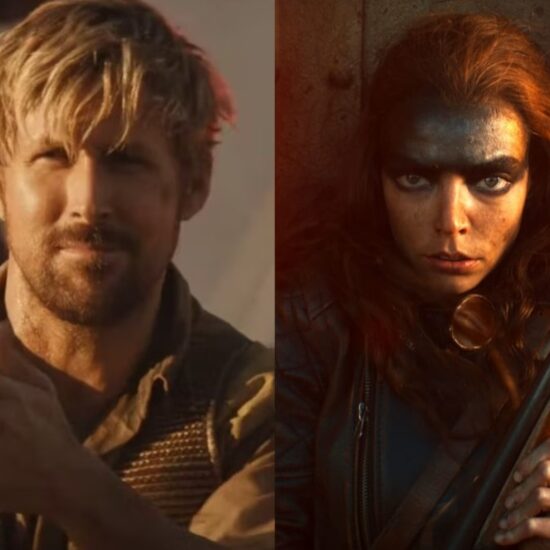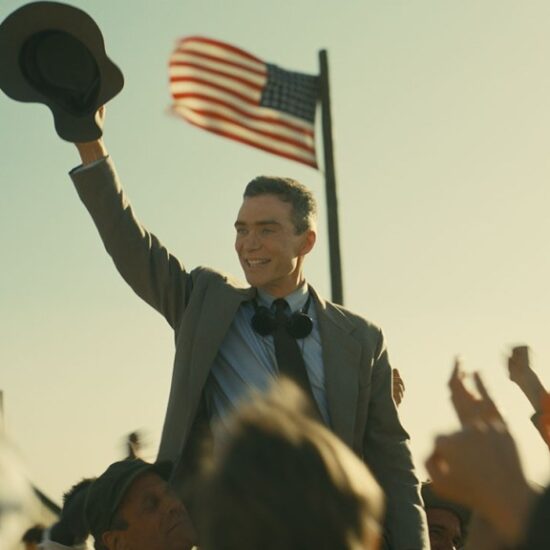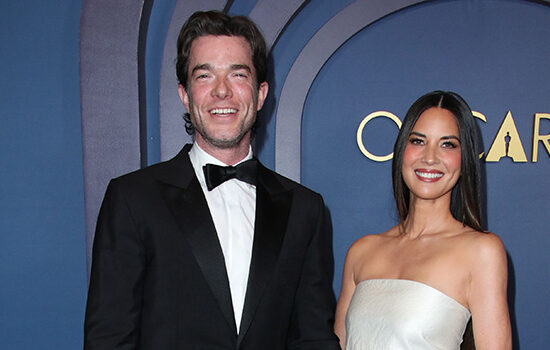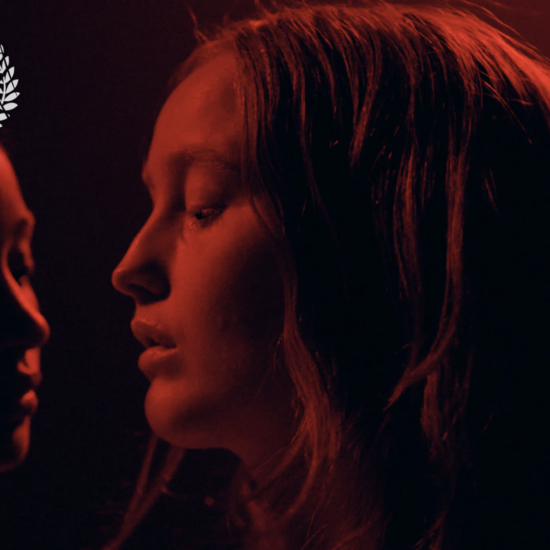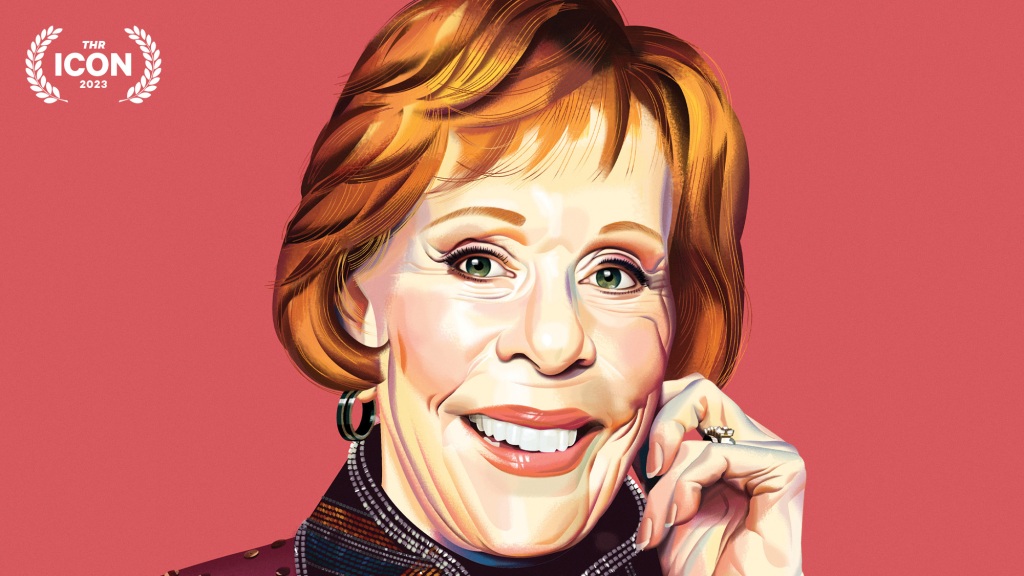
Carol Burnett has always made the audience her priority. Over 11 seasons of her landmark variety show, she indulged fans in countless Tarzan yells, never reshot a sketch when one of her co-stars cracked up and prided herself on getting The Carol Burnett Show‘s weekly crowds (and its staff) out of the studio in time for dinner. Naturally, during the recent taping of the upcoming NBC special Carol Burnett: 90 Years of Laughter + Love, she avoided the trappings of a clip show. And she kept things moving. “It’s a two-hour show, and we were done in about two-and-a-half,” she says of her early birthday party — filmed in front of a live audience. “I want people to feel like they’re seeing a Broadway show, not sitting around waiting for scenery or costume changes.”
As she turns 90 on April 26, the day her special drops, Burnett’s love of comedy has never wavered — nor has the enthusiasm for her distinctive and timeless style. The countless feathers in her cap include six Emmys, a Tony, a Grammy, a lifetime achievement Golden Globe named for her, the Presidential Medal of Freedom, a Life Achievement Award from SAG-AFTRA and the Mark Twain Prize for American Humor. More may very well be on the way. She stunned critics with her 2022 turn on Better Call Saul and soon stars alongside Kristen Wiig, Laura Dern and Allison Janney on the Apple TV+ comedy Palm Royale. Speaking over the phone from the Santa Barbara home she shares with her husband of 21 years, Burnett reflected on her career and praised the women in comedy she admires most today — and the ones who never got their due.
Happy early birthday.
Thank you!
What’s the appropriate reaction when you’re pitched a two-hour TV special to commemorate turning another year older?
Well, I was very flattered — but I was happy that it didn’t turn out to be a roast or even a birthday party but an actual show. It’s a variety show with live entertainment — a 19-piece orchestra and entertainment by Bernadette Peters, Billy Porter, Jane Lynch, Katy Perry, Aileen Quinn, Kristin Chenoweth … so many people. There are, of course, a lot of featured clips — not only of the variety show I did, but of the early years.
Were you surprised by anything that they found?
There was something from when I was 22 or 23. I was on Omnibus with Leonard Bernstein when he was doing a tribute to musical comedy. He hired me to do a song [“Give Him the Ooh-La-La”] that Ethel Merman had introduced in the late 1930s musical comedy Du Barry Was a Lady. I was thrilled to get that job. The Burnett Show is only one segment [in the NBC special]. But it really is a lot of live entertainment and incredible support from friends like Cher and Marisa Tomei.
Cher is among the guests joining the comic legend on NBC’s Carol Burnett: 90 Years of Laughter + Love.
Trae Patton/NBC
Did you get emotional at all?
It’s a little bit teary-eyed at one point. We pay homage to [late co-stars] Harvey Korman and Tim Conway and Lyle Waggoner. It was just unbelievable how many people turned out and spoke, but they were mostly just very, very funny. Julie Andrews flew out and sat with me the whole evening. It was the best kind of birthday party I could ever have.
Do you like talking about the past? I imagine there’s a lot of that expected around a milestone birthday, and I certainly planned to ask you about it.
Well, let me put it this way: I don’t mind talking about it. That’s why we’re here. And I remember it all very well — so many details. If you ask me something I don’t remember, it’s probably because it didn’t stick with me very long in the first place.

Burnett and longtime friend Julie Andrews (left) co-headlined two TV specials in their careers, one at Carnegie Hall in 1962 and another at Lincoln Center in 1971.
George E. Joseph/TV Guide/Courtesy Everett Collection
After you left The Garry Moore Show in 1962, you signed a 10-year contract with CBS. That’s an insane length of time by today’s standards. Did you have any hesitations in locking yourself in somewhere for so long?
No, I had a very good agent! It was 10 years where I would be required to do an hourlong variety special each year and two guest spots on some CBS shows. The big thing in the contract is that if I wanted to push the button, CBS would have to give me 30 one-hour variety shows a year. They’d have to put them on the air whether they wanted to or not.
And you pushed that button.
At the end of the fifth year, during the holidays, I made a phone call to one of the vice presidents at CBS in New York, and I said, “I’m calling to push that button.” I’m sure he got a lot of lawyers out of Christmas parties that night. The next day, he called back and said, “Carol, comedy variety is a man’s game. It’s Sid Caesar, it’s Milton Berle, it’s Jackie Gleason, it’s Dean Martin. It’s really not for you gals.” They didn’t want to do it, but they had to put us on the air.
Did you feel pressure to prove them wrong?
No. I never felt any pressure. We had a well-oiled machine from the very beginning. A lot of the people who were on The Garry Moore Show — the head writer, the choreographer, one of the lead dancers, the director — flew out to do it with us. We knew what we were doing. And I just told everybody to not think about the future. If we had fun, the audience would have fun. [The network] did not expect us to last past that first season but got over 270 episodes in 11 years.
Today, you’d be credited as a producer on a show that carried your name — but you weren’t. Can you explain that to me?
Well, I didn’t produce it. My [then] husband [Joe Hamilton] did. He had produced The Garry Moore Show, so that was a given. He was the business person, and he worked with the writers. I worked with the writers too, but my deal was like Lucy’s [Lucille Ball]. And I talked to her quite often. Desi [Arnaz] kind of ran the behind-the-scenes [stuff], and she said, “That freed me up to be crazy, funny Lucy.” What I wanted more than anything was to have a rep company. It was my name in the title, but there were sketches where I would support Harvey, Tim or Vicki [Lawrence]. I wanted every one of them to score touchdowns. It makes the show better. I learned that from Garry Moore.
I realize that the show never really leaned into the politics of the time. But, in those early years, you aired alongside the Smothers brothers — who faced scrutiny from CBS to the point of cancellation. Did you ever have a problem getting any material on the air?
No, because we were more vaudeville. We didn’t get very topical about anything. We just wanted things to be timeless. You do sketches about what’s going on in the world at that time and then time goes on and it doesn’t hold up as much. Some of the sketches that we did are 40 or 50 years old. They hold up. Look at the dentist sketch with Tim and Harvey. That should go in the time capsule. I dare anybody to watch that today and not lose it.

She shared a comedy block with Tom (left) and Dick Smothers until their 1969 cancellation by CBS.
CBS/Getty Images
The dentist sketch is the one where Harvey allegedly peed his pants, yes?
That’s what Tim said. (Laughs.)
So much has been said over the years about Tim making Harvey break. Who made you break?
There was one time we were doing [recurring sketch] “The Family” and we were playing Password. Tim was Mickey Hart and I was Eunice and Vicki was Mama. Tim got on a roll about a story about Siamese elephants joined at the trunk. He went on and on and on. I just lost it. But he was always trying to make me laugh when we did Mrs. Wiggins and Mr. Tudball. He tried, but I never did. Mrs. Wiggins was a person who couldn’t laugh because she was so stupid. There are several moments where you see my character look like she’s biting her fingernails, but I was biting my finger to keep from laughing.
Why do you think people love watching sketch comics break so much?
It goes back to giggling in church or giggling in the library. There’s nothing more delicious than when you can’t help it. Harvey really hated breaking up. It drove him crazy. But Tim, the little dickens, he was out to get Harvey. And, really, people think we did break a lot. But if you watch all 270 or so shows, it was a very small percentage of the time.

Recurring Carol Burnett Show sketch “The Family” spawned the TV movie Eunice and the long-running Vicki Lawrence series Mama’s Family.
Courtesy Everett Collection
You also didn’t air live.
Yeah, but I never wanted to reset and retape anything. We taped our show in an hour and 15 minutes. The Q&A is all what we’d cut and trim. I never wanted to keep the audience waiting. I used to have a bet with the stagehands that I could do a skin-out change faster than they could move a couch across the stage. I have been a guest — ugh! — on some sitcoms where it’s a 22-minute episode and they take five hours to tape. They send out for pizza for the audience, and there’s this poor comic up there trying to keep everybody happy. I don’t know why they take so much time. It’s not necessary at all. It’s ridiculous.
I’ve been to tapings that felt like a trip to the DMV.
I agree! Sometimes they let an audience go after an hour and a half to bring in another one to watch the second half. They don’t know what the heck’s going on! (Laughs.)
Going back to what you said about your desire to make the show timeless, there’s an incredible amount of foresight there. At the time, shows didn’t have a second life the way they do now. You had no way of knowing there’d be Time Life box sets and then streaming and …
YouTube! I’m getting fan mail from 10-year-olds and teenagers and young adults. I could be their great-grandmother! It’s just a thrill for me … they’re watching because there is a timelessness to that show. The clothes kind of date us a little bit, especially the ’70s stuff. But Bob Mackie, my God, he designed 65 to 70 costumes a week. It was he who came up with the Gone With the Wind curtain rod idea. That’s in the Smithsonian.

“Went with the Wind!” — a spoof of Gone With the Wind — is perhaps the most famous of The Carol Burnett Show’s pop culture parodies;
Courtesy Everett Collection
You have a history of engaging with fans. Vicki Lawrence got on your show because she wrote you a letter, and I’ve read interviews you’ve given to high schoolers simply because they reached out. Where does that come from?
When I was the editor of the Hollywood High School newspaper, I got an idea to interview famous people who went to Hollywood High. One of those [was] Joel McCrea. I called up the studio where he worked, introduced myself to the manager. They thought that was kind of cute. So, I interviewed him. He couldn’t have been nicer. When I get a very sweet letter from a very young person — if they’re going to be in a show or they want some advice of how to do something — and they leave me their phone number, I call them. I enjoy doing that because I’ve always remembered how nice Joel McCrea was to me.
I’ve read that your TV tastes lean much more drama than comedy, but I’m wondering who really makes you laugh these days.
The women! I have to bring up Kristen Wiig, Amy Poehler, Tina Fey, Jane Lynch, all of those comedians. They’re just absolutely wonderful. When I started out, it was mainly Lucy. There are so many wonderful, funny women 1681391557. Also, I love that they have their own production companies. Lucy paved the way with all of that.
What did it mean to have Lucille Ball champion you early in your career?
It meant the world. She gave me work when I wasn’t working. She was a mentor. We just bonded. She gave me a baby shower when I was pregnant with my second baby. It was a black-tie evening affair with men. It was hysterical. At that time, she was married to Gary Morton, who was a comedian. It was his job to open all of the baby presents and do bits about them. He was like Don Rickles. There were drinks and hors d’oeuvres. As we were leaving, the men said, “We had no idea baby showers could be this much fun.”

Burnett with friend and mentor Lucille Ball.
Ron Galella/Ron Galella Collection/Getty Images
You and Lucy have legacies that will far outlast all of us. Who from your generation do you think was really underrated — or didn’t get enough due?
Dorothy Loudon was brilliant in everything she did. She created Miss Hannigan [in Annie] on Broadway. She was just out of this world. She should have done the [1982] movie. I mean, I enjoyed it. I was grateful that I did it, but that would’ve been a wonderful thing for her. There weren’t too many women around at the time. Pat Carroll was very funny, and Nanette Fabray was wonderful. She was recognized and she worked a lot. But her career wasn’t as big as it should have been.
Between your stint on the final season of Better Call Saul and your role in the upcoming Apple series Palm Royale (formerly Mrs. American Pie), you’re working a lot. How does this stage of your career compare to what you expected from it?
Well, I never thought about it one way or the other … but, now that I am, it’s kind of wild that I’m still active at my tender age. But so is Rita Moreno! She’s a spitfire. I think what’s nice is that Dick Van Dyke is still trucking along. So is Mel Brooks. There seems to be more longevity at this time than there was maybe 20 years ago if you’ve still got all your faculties. God knows that Carl Reiner, before he passed away, was as sharp as ever.

Her work alongside Bob Odenkirk on Better Call Saul earned Burnett her most recent critical acclaim.
Greg Lewis/AMC/Courtesy Everett Collection
I really love the story about the $50 you received anonymously so you could afford freshman tuition to UCLA. Have you speculated over the years about who it might have come from?
I have no idea. Nobody in the neighborhood had that kind of money. Everybody was poor. If anybody did come up with it, anybody that I knew, I’m sure they would’ve said, “Look, kid, I’m going to help you out here.” To this day, I do not know where that came from.
What’s a normal day like for you?
I live in Santa Barbara. My husband [Brian Miller] and I start the day with crossword puzzles. Oh, and I Wordle. I Wordle with Allison Janney, Charlize Theron and David Crane, who wrote Friends. They’re my friends, and we all Wordle.

In 2019, the HFPA created the Carol Burnett Award for contributions to TV
Kevin Winter/Getty Images
Are you working on anything new?
I’m thinking of writing a treatment — not a book — on when I lived at the Rehearsal Club in New York. Stage Door, the movie, was written about it years ago. That was a wonderful place for young women who wanted to be in the theater. I lived there for a year, and it was $18 a week for room and board in New York — sponsored by the wealthy ladies who lunch. There are so many different stories about the different girls who lived there — those who got a break and those who didn’t. I think it could be a good series.
I’m going to let you go, but I am dying to know: What was the last movie or TV performance you saw that you’d love to parody if you still had a variety show?
Cate Blanchett in Tár! Oh my, that would be fun for me.
Interview edited for length and clarity.
This story first appeared in the April 12 issue of The Hollywood Reporter magazine. Click here to subscribe.









